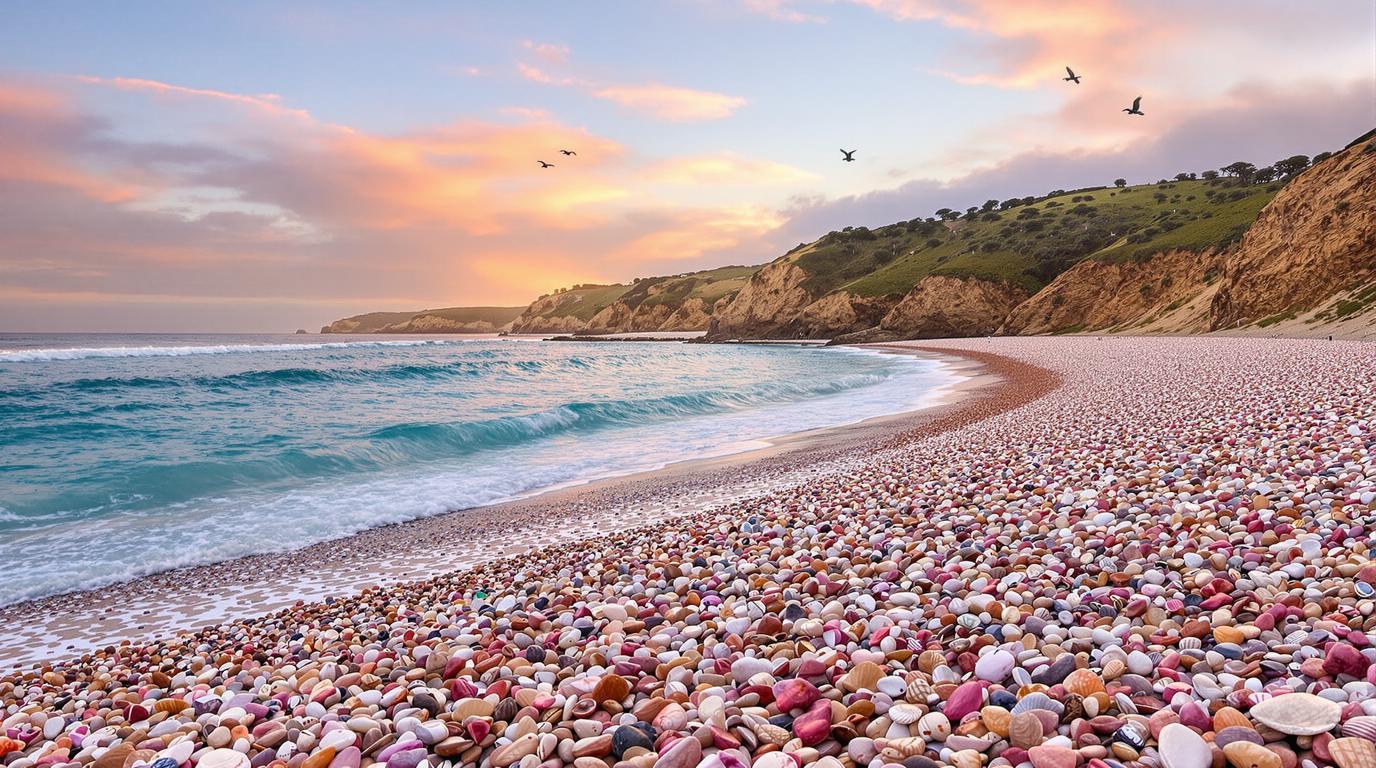Stepping onto Herm feels like discovering a secret chapter of Britain that time forgot. This tiny car-free island—measuring just 1.5 miles long and half a mile wide—sits in the English Channel as part of the Bailiwick of Guernsey, yet remains wonderfully untouched by the modern world. While visitors flock to better-known Channel Islands, Herm offers something increasingly rare: genuine tranquility.
An island where cars don’t exist
Perhaps Herm’s most striking feature is its complete absence of automobiles. Like its Mediterranean counterpart where donkeys navigate ancient cobblestone streets, Herm embraces slowness as a virtue. The island’s 60 permanent residents traverse its footpaths by bicycle or on foot, creating an atmosphere that instantly decelerates your internal clock.
Shell Beach: nature’s treasure trove
The northern coastline reveals Shell Beach, a spectacular stretch where millions of tiny shells create a natural carpet that crunches pleasantly underfoot. Unlike manufactured tourist attractions, this beach earned its name honestly—the shells wash up naturally from the Gulf Stream, creating a constantly renewing tapestry of white, pink, and yellow fragments.
“The shells on our beach come from deep Atlantic waters. Each tide brings new treasures—some shells so tiny and perfect they look like miniature works of art,” explains Jane Matthews, a local shopkeeper.
Britain’s southernmost puffin colony
Between April and July, Herm hosts Britain’s southernmost puffin colony. These charismatic birds with their distinctive orange bills nest in the eastern cliffs, offering wildlife enthusiasts an intimate viewing experience without the crowds found at larger colonies. Dawn walks along the cliff paths often reward early risers with puffins bobbing on the waves below.
A microcosm of British history
Despite its diminutive size, Herm contains an impressive concentration of historical sites. Neolithic tombs date back 4,000 years, while St. Tugual’s Chapel features medieval foundations and stunning stained glass. The island even housed German occupation forces during WWII, with remnants of bunkers still visible along coastal paths.
The Mermaid Tavern: where islanders gather
The beating heart of island social life is undoubtedly The Mermaid Tavern. This traditional British pub serves fresh seafood caught by local fishermen alongside Guernsey ales that never travel more than a few miles to reach your glass. On summer evenings, the tavern garden fills with a mix of visitors and year-round residents exchanging stories.
The shortest commute in Britain
Herm’s only hotel, The White House, proudly maintains an unusual tradition—no clocks or televisions in any room. Like other remote island paradises where time seems suspended, Herm encourages guests to synchronize with natural rhythms instead of digital demands.
Spectacular dark skies
With zero light pollution, Herm offers spectacular stargazing opportunities that rival destinations known for nature’s most spectacular light shows. The Milky Way appears as a brilliant river of stars on clear nights, with the only interruption being the rhythmic flash of nearby lighthouses.
“I’ve traveled the world but never seen stars quite like on Herm. The first time visitors look up at night, there’s always an audible gasp,” says Richard Grieve, island boatman.
A sustainable microcosm
Herm’s isolation has forced remarkable self-sufficiency. The island generates its own electricity, collects rainwater, and maintains extensive gardens that supply local restaurants. This closed-loop system resembles traditional villages where residents harvest directly from historical sources.
Britain’s most exclusive swimming spots
While Shell Beach draws most visitors, locals prefer Belvoir Bay on the island’s west coast. This sheltered cove features translucent waters more reminiscent of hidden turquoise lakes in volcanic landscapes than typical British seasides. At low tide, natural pools form among granite outcroppings, creating private bathing areas warmed by the sun.
Herm exists as Britain in miniature—containing beaches, woodlands, fields, and cliffs within its tiny circumference, yet offering an authenticity increasingly rare in our hyperconnected world. This pocket-sized paradise reminds us that sometimes the most profound travel experiences come in the smallest packages.
